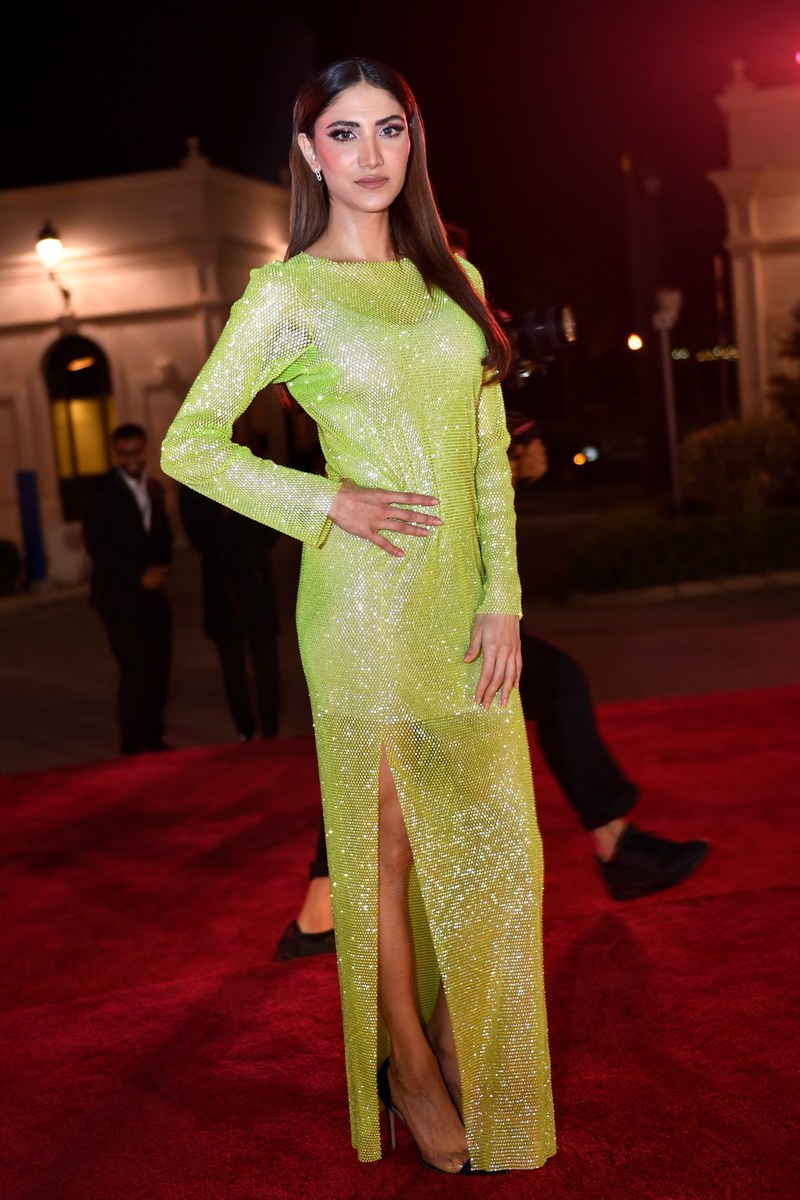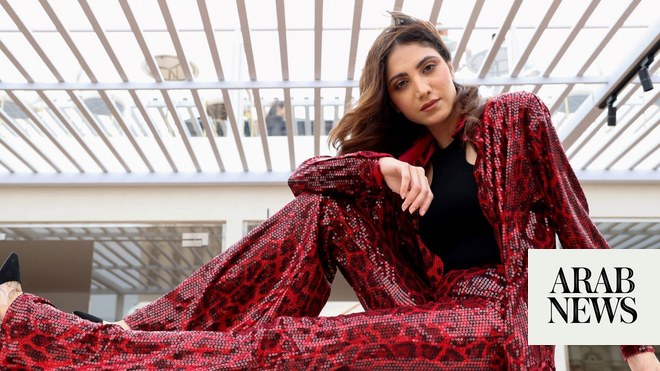DUBAI: Kuwait has long been a stronghold for the dramatic arts in the Gulf region, producing numerous series and plays year after year that often get the Arabian Peninsula talking. With “The Exchange,” Netflix’s latest original series set in the country, Kuwait may have found its first global hit, earning an endorsement from The New York Times along with acclaim from reviewers and audiences both in the Middle East and worldwide.
By telling a female-focused finance story with wit, style, and substance, “The Exchange” may mark the moment that Kuwait’s deep roster of artistic talent finally earns the breakthrough they have long been yearning for — with the dream of telling their stories on the world stage set to become a reality.
“We have an identity that we’ve never had a real chance to show,” Rawan Mahdi, the series’ breakout star, tells Arab News. “This show is the first chance we’ve had to show our identities as Kuwaiti artists. This was the dream that I and many of us have always had. Now, our aspirations are set even higher.”
Mahdi herself, who dominates the show’s screentime through its six episodes, is a major reason why the project — a period piece set in 1987 — works so well. She plays Farida, a recently-divorced single mother whose struggles to provide for her family lead her to the Kuwaiti Stock Exchange. There, she teams up with Munira, a savvy trader also attempting to reshape the broken ‘boys club’ from the inside. Together, they battle the misogyny and biases that hold them back to become forces of nature within the exchange, earning the respect of their peers and the envy of their enemies — all to help their struggling families.

“When I was first approached by the producer, they thought I was suitable for both roles, but I really connected with Farida’s soul. As the story progressed, she came to me more and more, piece by piece. In the first two episodes, she’s very restricted — she’s keeping things on the inside, but as she starts to blossom at the stock exchange, you really see her come to life,” says Mahdi.
Farida, as it turns out, is a not merely a creation of the writers’ imagination. In fact, she is based on the mother of the series’ co-creator Nadia Ahmad, who raised her daughter in the late Eighties in similar circumstances.

It is no surprise, then, that when Mahdi arrived at the premiere, her biggest concern was not what the critics, influential audience members or executives might think. The only feedback she was truly nervous about was that of Ahmad’s mother herself, who was in attendance.
“I was so scared what Nadia’s mom would think,” Mahdi admits. “But when we finally met, what she said to me was truly humbling, and left me speechless. She said to me the most beautiful words that I can’t ever let myself forget.”
Ahmad’s mother approached her after the premiere, watching intently from the front row as Mahdi took the microphone and delivered an impassioned speech about why she felt “The Exchange” was a landmark moment for both Gulf drama and for representation of Khaleeji women.
“She told me how proud she is, and how the representation of Kuwaiti women (in the show) is really beautiful. ‘Watching it, I fell in love with your character. Even the way you speak about it, and hearing the way you speak about my daughter’s project, fills me with pride,’ she said to me,” says Mahdi.

Even Ahmad herself, who did not speak much with Mahdi during production, which Mahdi believes was to allow her the artistic freedom to interpret the role on her own, was wowed by the level of detail that Mahdi put into embodying the role, with a truly transformative physicality that made the character feel real throughout.
“For me, that was possible because Farida and I share the same values — everything we do is for love, to love, and because of love,” says Mahdi. “I was raised in a family that was all about love, especially in my relationship with my dad. So when I found that in Farida, it touched me so much, and it became the thing I latched onto in my performance of her, and the moments when that love shines through were the most special moments for me on set,” Mahdi continues.
It was through her love for her father that Mahdi first discovered her passion for film and television, and first set her goal of becoming an actress. Her father is the renowned Iraqi screenwriter and director Mehdi al-Sayegh, who has lived his whole life in Kuwait.
“He lives his daily life surrounded by art, and he taught me about everything beautiful in life. He showed me great cinema, and would break down how film worked without a goal in mind — just because this is what he was passionate about, and how he raised me,” says Mahdi.
“Cinema and my dad have taught me everything I know about life, and have made me feel like life is fine. It makes sense that I’m an actor now, because I’m so interested in this artform. I love life, but life is not easy. Cinema can make sad moments beautiful, and make beautiful moments shine even brighter,” she continues.
As Mahdi fell in love with film and television from across the world, she quietly wondered why stories like that couldn’t come from Kuwait, hoping for the day she could commit her talents to something she was truly proud of.
‘When this script came to me, it was an absolute joy. It was a one-of-a-kind script in our region; I’d never read anything like it since I started acting,” she says.
“While it follows men and women fighting through the course of their lives in the Eighties, to me it represents the same struggles that I think men and women in Kuwait are having today. Now, all of us are struggling to find our passion, struggling to do what we love or achieve what we want.
“I was so inspired that this captured Kuwait both then and now. I wish it had come earlier, but I’m glad it came now,” Mahdi continues.
She truly saw what makes “The Exchange” so special at the premiere, as she looked behind her as the screening ended and saw the faces of all those in the audience.
“What I saw in people’s eyes was really something I’d never seen before. It was really overwhelming — coming from the closest people in my life, to total strangers, to the people I work with,” Mahdi says. “There was something in their eyes that was so proud, and so real. People looked at me, especially my friends, like I had given them hope. That was magical for me. That was true beauty.”
(Except for the headline, this story has not been edited by PostX News and is published from a syndicated feed.)

